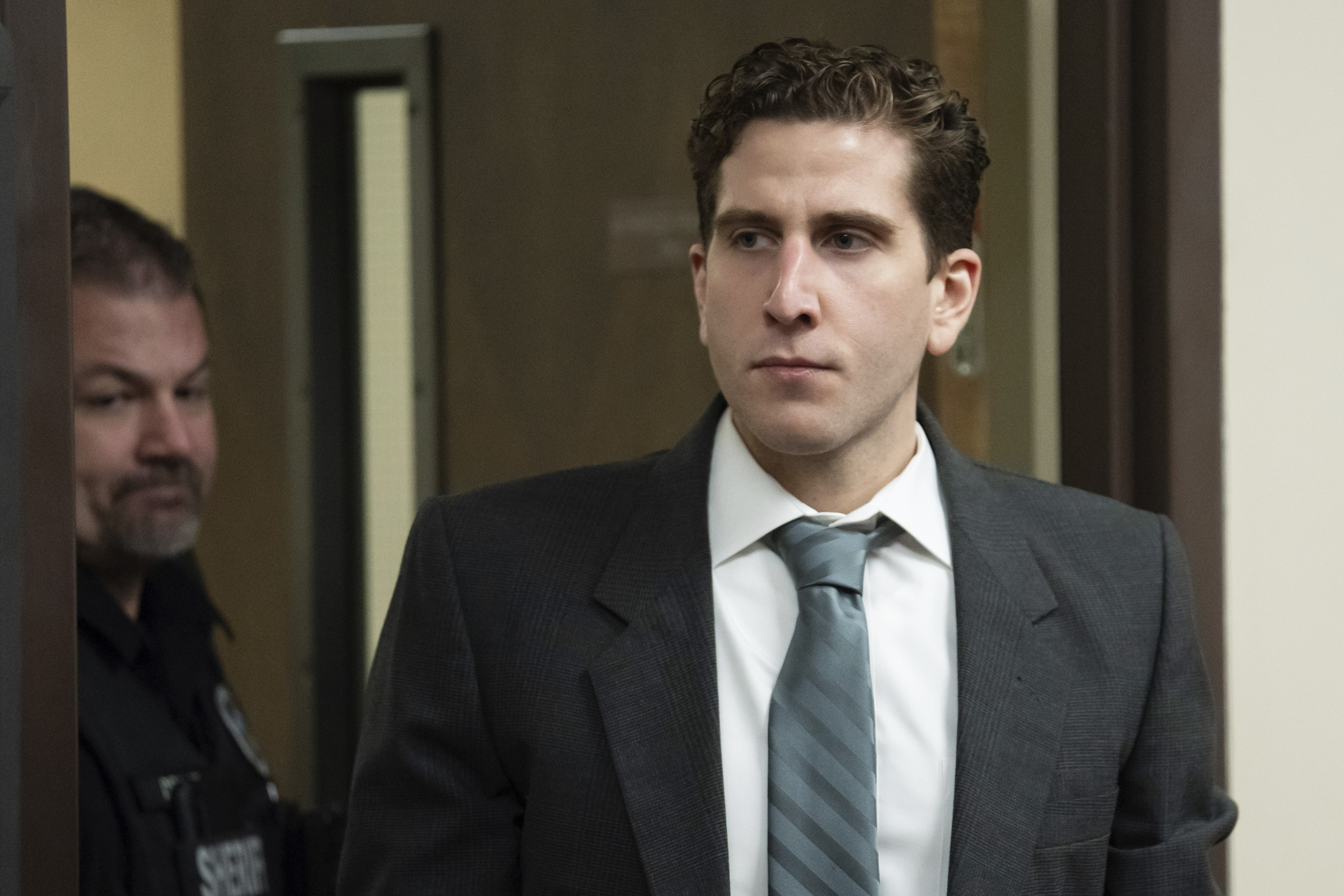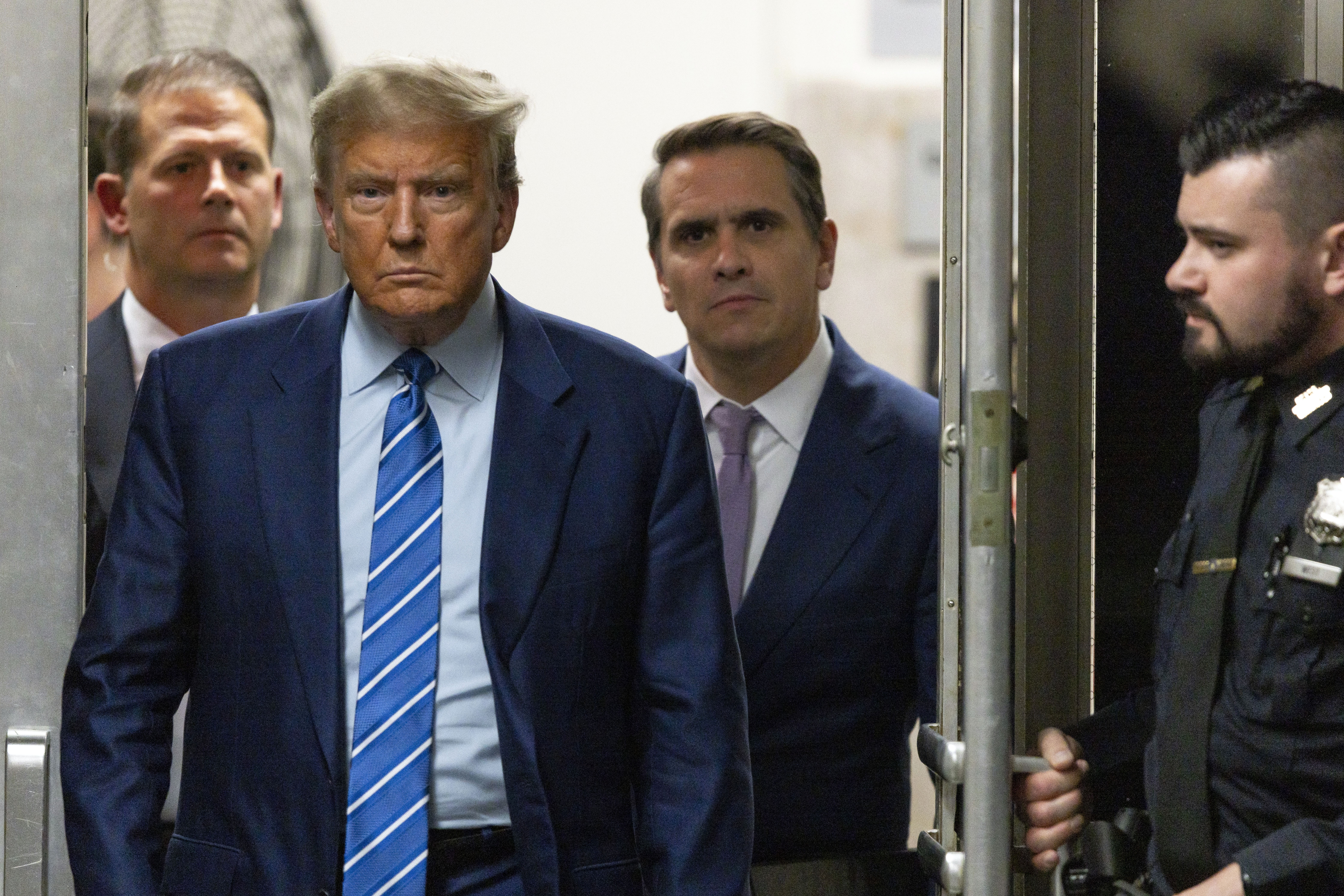The stretches in solitary confinement inside a detention center in the mountains of Virginia were what broke him, the Honduran teen said. The guards stopped bringing food, he said. One time they let him out, and a group of them came at him. So many guards were kicking him in the gut, he said, he couldn't breathe.
"I was just crying and praying to see my mother one more time," said the 18-year-old immigrant, who gave his firsthand account to The Associated Press on condition of anonymity because he feared the government might retaliate against him for speaking publicly. "I ended up getting put in solitary confinement for no reason."
The teen's experience echoes abuse claims by other children whose accounts are included in a federal civil rights lawsuit charging that guards at the Shenandoah Valley Juvenile Center in Staunton, Virginia, beat them, locked them up for long periods in solitary confinement and left them nude and shivering in concrete cells. He arrived at Shenandoah in the summer of 2016 when he was 16 years old — during part of the time period covered by allegations in the lawsuit, which spans both the Obama and Trump administrations.
The center's director has denied that children were abused at the facility. The facility did not immediately respond to a request for details about the teen's case on Wednesday.
The Honduran teen said he began his journey to the United States with his brother after he and his family received death threats from drug traffickers in his rural region of Honduras. He was 15 when he hopped a freight train known as the beast, or La Bestia, on a frightening journey through Mexico. He turned himself in to U.S. authorities in the spring of 2016 at the U.S.-Mexico border, he said.
Because he entered the country illegally and without relatives, he was routed to a few shelters run by the U.S. Department of Health and Human Services meant for unaccompanied immigrant children. Later that summer, after he got in a couple of fights with other detained teens who he said had taunted him and taken his things, he was put on a plane that would take him to Virginia and the Shenandoah Valley Juvenile Center.
That's where his real troubles began, he said.
U.S. & World
"I got to the airport and two men came and started tying up my ankles and wrists," the teen said. "When we got there, they took me into the bathroom and stripped me down so I was naked."
Sometime later, after he was locked away by himself in a cell, guards temporarily papered over the cell's small windows to keep him from looking out, he said. Guards also would withhold food and eat in front of him at times, he said. Breakfast, when it was provided, consisted of an apple and crackers.
When the guards got aggressive he sometimes fought back, the teen said, and once he was once charged with a misdemeanor for assaulting a guard.
The Associated Press independently confirmed the basic outlines of the teen's account through documents and corroborating accounts from someone familiar with his case who spoke on the condition of anonymity because they were not authorized to discuss the center's inner workings.
Virginia Gov. Ralph Northam last Thursday ordered two state agencies to open probes into the facility, hours after the AP first published allegations of severe abuse at the center. The AP report also cited a child development specialist who previously worked with teens at Shenandoah and said she saw bruises and broken bones the children said were caused by guards.
Virginia Democratic Sens. Mark Warner and Tim Kaine have sent a list of questions about the case to the head of the U.S. Office of Refugee Resettlement, which oversees the care of immigrant children held in federal custody. On Tuesday, 77 Democratic lawmakers signed a letter from Rep. Don Beyer of Virginia seeking answers about the allegations of abuses at the lockup.
Shenandoah's executive director, Timothy J. Smith, said Friday that an internal investigation had concluded that the incidents described in the lawsuit against his facility were unfounded and "can be readily dispelled." Smith said his staff will cooperate with state and federal investigations.
The Shenandoah lockup is one of three juvenile detention facilities in the United States with federal contracts to provide "secure placement" for immigrant children who had problems at less-restrictive housing.
Since 2007, about half the 58 beds are occupied by male and female immigrants between the ages of 12 and 17 facing deportation proceedings or awaiting rulings on asylum claims. Though incarcerated in a facility similar to a prison, the children detained on administrative immigration charges have not yet been convicted of any crime.
Many of the children were sent there after U.S. immigration authorities under both the Obama and Trump administrations accused them of belonging to violent gangs, including MS-13. President Donald Trump has repeatedly cited gang activity as justification for his crackdown on illegal immigration. A top manager at Shenandoah said at a recent congressional hearing that the children did not appear to be gang members and many were suffering from mental health issues tied to trauma in their home countries.
Academic studies of prison inmates kept in solitary confinement have found they often experience high anxiety that can cause panic attacks, paranoia and disordered thinking that may trigger angry outbursts. For those with mental health issues, the effects can be exacerbated, often worsening the behaviors the staff is attempting to discourage.
The Honduran teen interviewed by the AP was released from the facility last year. He is now living in Oakland and said he hopes to go back to school sometime down the road. His dreams are modest: to be a better person and to help his mother back in Honduras. But he said the weeks in solitary confinement still play with his mind. He said he still has trouble focusing and getting his brain to stop turning back to the bad things that happened.
Now, with thousands of new children in government custody as the result of the Trump administration's short-lived family separation policy, the teen hopes that something can be done to change the system that put him and other migrant youths behind locked doors. If he had his way, the Shenandoah juvenile center would be shut down.
"People keep coming and kids keep coming, and some of them are just children and some of them are girls," he said. "They all suffer just like we did or worse."



